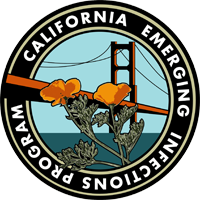Help us effectively monitor for TSE cases by arranging autopsies for suspected CJD cases, listing CJD on death certificates and reporting cases to the local health department.
Report all human cases of CJD or TSE to your local health department
A definitive CJD diagnosis can only be made by neuropathological examination of brain tissue obtained through biopsy or autopsy. Although CJD may be suspected on the basis of clinical symptoms and the results of other diagnostic tests, they are not confirmatory. Because these diseases are rare and difficult to diagnose, the CA Department of Public Health’s surveillance case definition requires that the diagnosis of CJD be made either by a neurologist or confirmed by biopsy or autopsy.
Alert us for suspected vCJD or iatrogenic CJD
Contact us by email, cjd@ceip.us or telephone (510) 350-3399. We are particularly interested if you are caring for a CJD patient with any of the following:
- Younger than 55 years of age
- Suspected diagnosis of variant CJD (see CDC’s Diagnostic Criteria for Variant CJD)
- History of neurosurgical procedure or receiving cadaver-derived human pituitary growth hormone, dura mater grafts, or corneal grafts (Note: for these possible iatrogenic cases, your local public health department must also be notified.)
- History of deer or elk meat consumption from states with endemic chronic wasting disease (CO, IL, KS, NE, NY, SD, UT, WI, WV, WY).
Arrange for an autopsy on all suspected CJD cases
We encourage providers to arrange brain autopsies for all clinically diagnosed or suspected CJD cases, regardless of age, in order to confirm the precise type of CJD. Our continued efforts to conduct surveillance for CJD will be greatly enhanced by increasing the proportion of CJD cases that are confirmed through autopsy tissue. The National Prion Disease Pathology Surveillance Center (NPDPSC) can assist in coordinating autopsies.
Clearly indicate the diagnosis of CJD on death certificates
By having the CJD ICD-10 code A81.0 on the death certificate, you will help improve our surveillance efforts through death data review.
